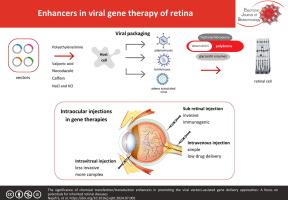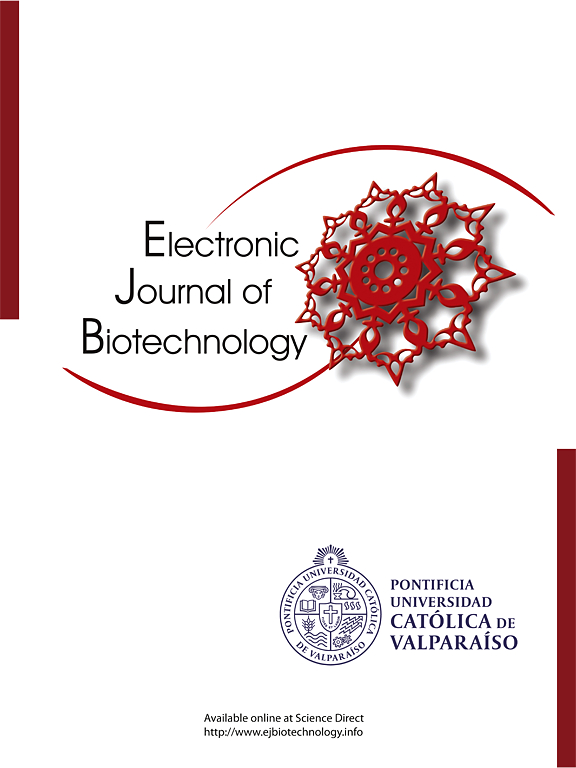The significance of chemical transfection/transduction enhancers in promoting the viral vectors-assisted gene delivery approaches: A focus on potentials for inherited retinal diseases
IF 2.5
4区 生物学
Q3 BIOTECHNOLOGY & APPLIED MICROBIOLOGY
引用次数: 0
Abstract
Viral vectors are among the main approaches currently used in studies for executing gene delivery to target cells. During the past decades of active studies in gene therapy, including viruses, adenoviruses (Ads), lentiviruses (LVs), and adeno-associated viruses (AAVs), have received the most attention among the biological approaches where potentially successful outcomes are recorded for numerous genetic conditions. The success of delivery methods, however, remains unsatisfactory. Using some additives that can improve transgene expression, transfection efficiency, viral particle production, and transduction efficiency is considered as a solution to overcoming the limitations of gene delivery approaches. These additives include caffeine, histone deacetylase (HDAC) inhibitors like sodium butyrate and valproic acid, and polycationic agents like polybrene and protamine sulfate. In this review article, we present an overview of viral vector-mediated retinal gene therapies and the application of some enhancers used to improve the outcomes of gene delivery. Three routes of administrating viral vectors into ocular compartments are employed for the delivery of target genes into impacted cells, and some additives have shown enhanced efficiency of gene delivery in retinal cells. The current study places a special focus on the viral vectors and enhancers used for gene therapies of inherited retinal diseases.
How to cite: Najafi S, Rahimpour A, Ahmadieh H, et al. The significance of chemical transfection/transduction enhancers in promoting the viral vectors-assisted gene delivery approaches: A focus on potentials for inherited retinal diseases. Electron J Biotechnol 2024;72. https://doi.org/10.1016/j.ejbt.2024.07.005.

化学转染/转导增强剂对促进病毒载体辅助基因递送方法的意义:遗传性视网膜疾病的治疗潜力
病毒载体是目前研究中用于向靶细胞传递基因的主要方法之一。在过去几十年积极开展的基因治疗研究中,包括腺病毒(Ads)、慢病毒(LVs)和腺相关病毒(AAVs)在内的病毒是最受关注的生物方法,这些方法对许多遗传疾病都有潜在的成功治疗效果。然而,传递方法的成功率仍不令人满意。使用一些能提高转基因表达、转染效率、病毒颗粒产量和转导效率的添加剂被认为是克服基因递送方法局限性的一种解决方案。这些添加剂包括咖啡因、组蛋白去乙酰化酶(HDAC)抑制剂(如丁酸钠和丙戊酸)以及多阳离子剂(如聚芘和硫酸原胺)。在这篇综述文章中,我们概述了病毒载体介导的视网膜基因疗法,以及一些用于改善基因递送效果的增强剂的应用。将病毒载体施用于眼部的三种途径可将目标基因传递到受影响的细胞中,而一些添加剂则可提高基因在视网膜细胞中的传递效率。本研究特别关注用于遗传性视网膜疾病基因疗法的病毒载体和增强剂:Najafi S, Rahimpour A, Ahmadieh H, et al. 化学转染/转导增强剂在促进病毒载体辅助基因递送方法中的意义:遗传性视网膜疾病的潜力。Electron J Biotechnol 2024;72. https://doi.org/10.1016/j.ejbt.2024.07.005.
本文章由计算机程序翻译,如有差异,请以英文原文为准。
求助全文
约1分钟内获得全文
求助全文
来源期刊

Electronic Journal of Biotechnology
工程技术-生物工程与应用微生物
CiteScore
5.60
自引率
0.00%
发文量
50
审稿时长
2 months
期刊介绍:
Electronic Journal of Biotechnology is an international scientific electronic journal, which publishes papers from all areas related to Biotechnology. It covers from molecular biology and the chemistry of biological processes to aquatic and earth environmental aspects, computational applications, policy and ethical issues directly related to Biotechnology.
The journal provides an effective way to publish research and review articles and short communications, video material, animation sequences and 3D are also accepted to support and enhance articles. The articles will be examined by a scientific committee and anonymous evaluators and published every two months in HTML and PDF formats (January 15th , March 15th, May 15th, July 15th, September 15th, November 15th).
The following areas are covered in the Journal:
• Animal Biotechnology
• Biofilms
• Bioinformatics
• Biomedicine
• Biopolicies of International Cooperation
• Biosafety
• Biotechnology Industry
• Biotechnology of Human Disorders
• Chemical Engineering
• Environmental Biotechnology
• Food Biotechnology
• Marine Biotechnology
• Microbial Biotechnology
• Molecular Biology and Genetics
•Nanobiotechnology
• Omics
• Plant Biotechnology
• Process Biotechnology
• Process Chemistry and Technology
• Tissue Engineering
 求助内容:
求助内容: 应助结果提醒方式:
应助结果提醒方式:


